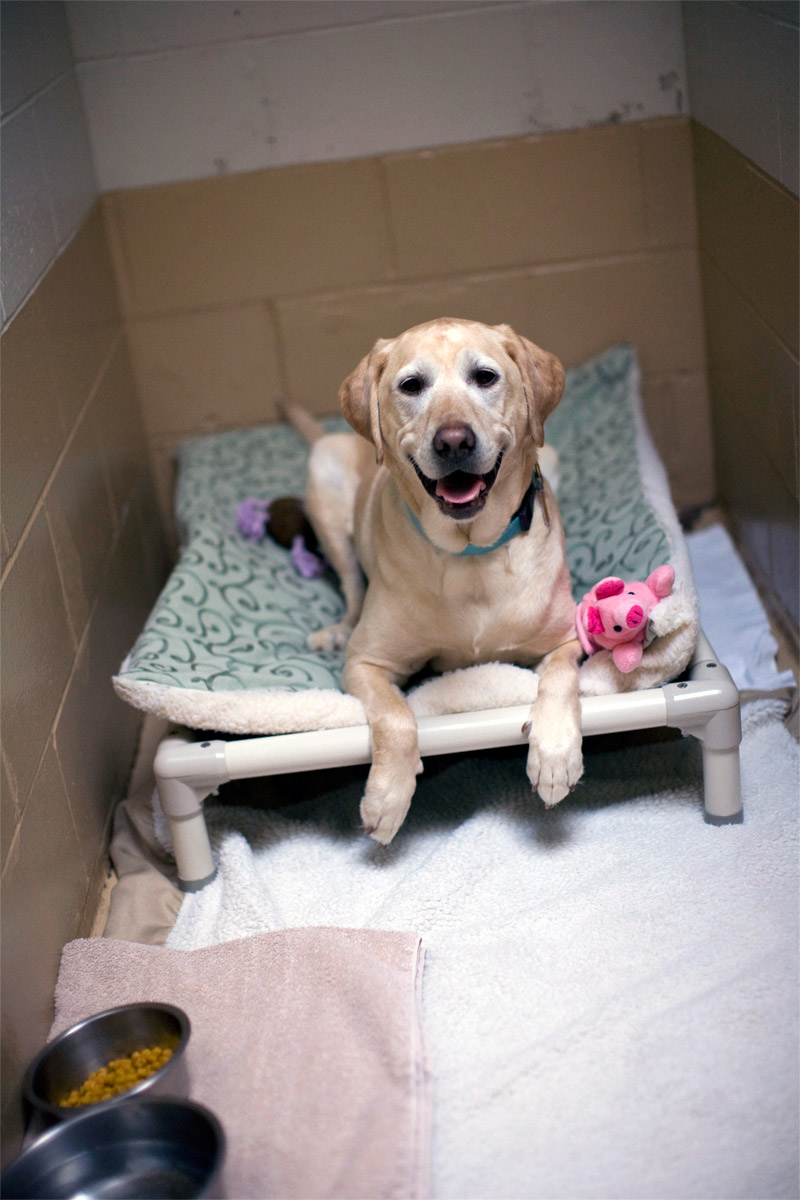Selecting a Boarding Kennel for Your Dog

Every owner wants to find a well-run boarding kennel for their pet, but how do you tell if it is well-run? Here's a ten point check list for any facility you are considering.
- Do They Allow Inspection?
You should be able to tour the whole facility with little advance notice. Any facility which refuses a tour is suspect. Many facilities are very busy and have specific tour hours. Please be respectful of their visiting hours. - Dogs Should Look Happy
While touring the kennel, most of the dogs should be up near or on the gates wagging their tails, barking and generally making a nuisance of themselves. One or two may hang back, but most should be up front. - Fencing
Double fencing is a must. Double fencing is one line of well maintained fence with another line of equally well maintained fence a few feet away. This ensures that even if a dog does get out of his run, he is still contained. Single fence facilities are okay; however, double fencing is much better. - Doors
There should always be two doors between your animal and freedom. Facilities which have doors directly to the outside in the kennel area are accidents waiting to happen. - A Member of ABKA?
ABKA stands for American Boarding Kennel Association, and is a good sign of the owner's commitment to professionalism. It isn't a guarantee, and lack of it does not mean the kennel isn't first-class, but it is reassuring to see the ABKA logo. - Requires Vaccinations
Good kennels require proof of up-to-date vaccinations including kennel cough (bordatella). Never leave an animal in a kennel where vaccinations are not required. This is your only guarantee against some major contagious diseases. - Smells Clean
Your nose knows. A boarding kennel filled with dogs will smell like dogs. Along with dogs, you may well smell disinfectant. There shouldn't be an overwhelming stench of urine or feces. Occasionally a dog comes in for boarding who isn't clean in their indoor pen, but these are rare. If more than a couple of dogs have urine and/or feces in their indoor areas, something is wrong. - Indoor/Outdoor Runs
These are attached runs with an individual door for each dog. This situation is safer and less stressful for your pet than being kept in a crate and taken outside a few times daily. The exception to this is dogs who may become frightened in the kennel. For these dogs, crating in a quieter area is best. - Boarding Kennels and Disease
No matter how excellent the kennel, boarding is still a stressful experience for most dogs. Stress leaves animals susceptible to disease. Also, not all vaccinations are 100 percent effective. Even dogs who have been vaccinated against kennel cough and viral diarrhea can pick up a strain not covered by the vaccine. Even a carefully run facility will occasionally have an intestinal bug. We take for granted that our children will get colds or skin a knee at school or camp, yet we are surprised when our dogs do the canine equivalent at a kennel. - Provide Information
If an emergency occurs, the kennel's obligation is to inform you of the situation (if possible), get the dog the necessary veterinary care while at their facility, and to practice thorough sanitation measures. Disease is rare at a good facility - but it can happen. That's just part of the package when your board your dog. Because of this, elderly dogs; puppies under 6 months of age; fearful, anxious dogs and dogs with immune problems are best cared for in a home environment.




